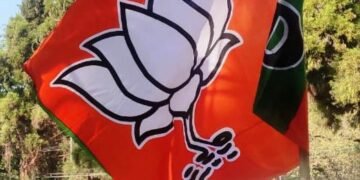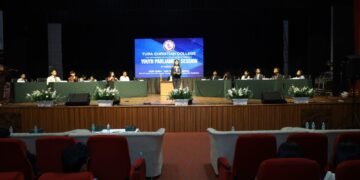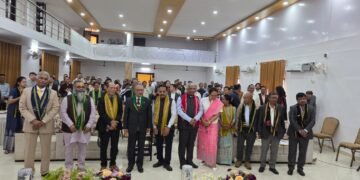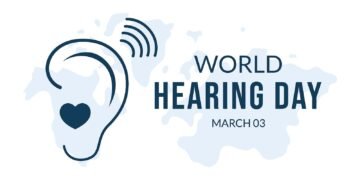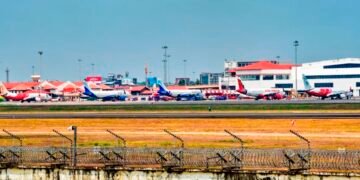By Dipak Kurmi
USAID, an agency founded in 1961 by President John F. Kennedy, has long been a symbol of American humanitarian values, providing essential assistance to countries across the world. From tackling food insecurity to providing life-saving healthcare and supporting economic development, the agency’s contributions have been invaluable in improving the lives of millions. However, in recent times, USAID has found itself at a crossroads, facing unprecedented challenges that threaten its very existence. At the heart of this existential crisis is a combination of political maneuvering, shifting priorities, and a growing push to restructure the federal government, especially under the Trump administration’s aggressive policies.
Historically, USAID has served as an embodiment of America’s soft power, using foreign aid as a tool for global influence and goodwill. Over the years, its work has built goodwill in nations that would otherwise be left behind by the global community. Its efforts to combat poverty, support democracy, and address public health challenges have saved millions of lives, making it one of the most successful and respected agencies worldwide. However, despite this track record, the agency has also been criticized for allegedly serving as a tool for U.S. political interests, with accusations that foreign aid often serves as a means to further American geopolitical ambitions.
The debate over USAID’s role in the world has intensified in the wake of the Trump administration’s broad push to reduce the size of the federal government. One of the key players in this effort is the newly established Department of Government Efficiency (DOGE), a body designed to streamline federal operations. As part of its mandate to eliminate inefficiencies and trim government spending, DOGE has identified USAID as a prime target. With a large budget and a significant footprint across the globe, USAID has become a symbol of the very inefficiencies the Trump administration aims to reduce. Plans to absorb the agency into the State Department or dramatically cut its budget have already begun to take shape. The implications of these moves would not only reshape the way the U.S. engages with the world, but could effectively dismantle the agency as it has existed for over six decades.
The crisis surrounding USAID reached a dramatic turning point when DOGE agents attempted to forcibly enter the agency’s Washington, D.C. headquarters. A tense standoff ensued, with security personnel attempting to block the agents’ entry. Eventually, DOGE succeeded in breaching USAID’s systems, locking out employees, and sifting through internal communications. Though the agency denied any allegations of wrongdoing, the situation raised significant concerns about the security of other federal agencies and whether such intrusions might become more common. This event marked the escalation of the ongoing battle for control over USAID’s future.
Adding to this chaos is the involvement of Elon Musk, a billionaire entrepreneur who has become one of the agency’s most vocal critics. Known for his ventures in electric vehicles, space exploration, and artificial intelligence, Musk has gone so far as to call USAID a “criminal organization” and a “viper’s nest” of corruption. He has alleged that USAID funds radical left-wing causes and has supported groups whose agendas do not align with U.S. interests. Musk’s attacks have been particularly potent because of his wide-reaching influence and outspoken support from certain segments of the political establishment. While President Trump has not explicitly endorsed Musk’s rhetoric, there is speculation that Musk’s critiques are influencing discussions within the White House regarding USAID’s future.
The stakes of this battle extend far beyond Washington’s political infighting. USAID is not merely a Washington-based bureaucracy; it operates in over 50 countries, often providing the backbone for development programs that support critical sectors like healthcare, sanitation, education, and economic development. If the U.S. pulls back from global aid efforts, as some have proposed, the impact will be felt around the world, especially in nations that rely heavily on foreign assistance. India, for example, has increasingly scrutinized the role of foreign-funded NGOs, with the Modi government implementing tighter controls on organizations that it views as meddling in its internal affairs. A reduced U.S. presence could align with India’s broader push for self-reliance and, potentially, the rise of new global players in South Asia.
Moreover, there is a strategic dimension to this debate. The U.S. has long used foreign aid as a way to cement its global leadership and spread its values of democracy, freedom, and human rights. With the proposed cutbacks to USAID, some have raised concerns that Washington risks ceding influence to China, which has made significant strides through its Belt and Road Initiative. China has been actively providing infrastructure financing and economic partnerships to countries across Africa, Asia, and beyond, areas where the U.S. once held a dominant position. A U.S. retreat from humanitarian aid would create a vacuum that China, and possibly Russia, would be more than willing to fill.
At the core of this debate is the question of what America’s role on the world stage should be. Should it continue to lead through soft power, investing in global development and helping lift millions out of poverty? Or should it adopt a more transactional, America-first approach, focusing solely on its own interests and leaving others to fend for themselves? Supporters of USAID argue that America’s power does not come solely from its military might but from its ability to help those in need. A retreat from humanitarian efforts could signal a fundamental shift in U.S. foreign policy, one that prioritizes self-interest over global cooperation.
What happens next will define the future of American foreign policy. If the political forces aligned against USAID succeed, it would mark the end of an era in which the U.S. was seen as a global leader in humanitarian assistance. For those who support the agency, this is not just a bureaucratic dispute; it is a fight over the soul of American internationalism. Will the U.S. continue to be a beacon of hope and support for the world’s most vulnerable, or will it turn inward, abandoning its role as a global force for good? The coming months will be critical in answering this question, as the fate of USAID and its legacy hang in the balance. In the end, history will judge whether the United States chose to uphold its commitment to global responsibility or succumbed to a more self-serving and isolationist vision of foreign policy.
(The writer can be reached at dipakkurmiglpltd@gmail.com)


